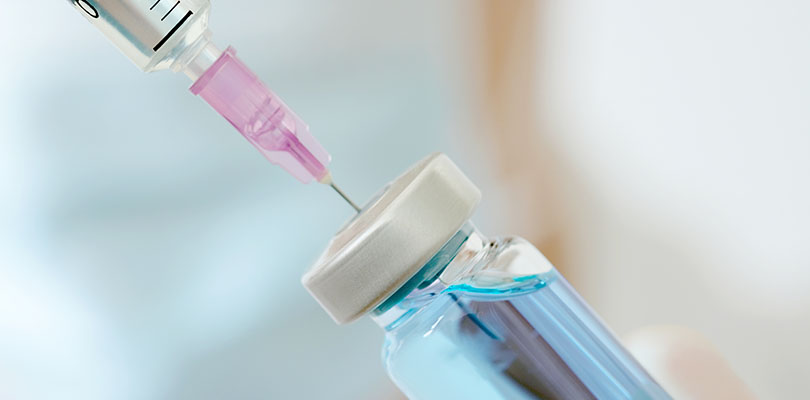Penicillin Injections for Rheumatoid Arthritis
Penicillin is an antibiotic that has been used in the U.S. since the 1940s. It is frequently prescribed for bacterial infections and has been called a ‘miracle drug’ since it has saved so many lives over the years.
Penicillin is less often associated with diseases such as rheumatoid arthritis (RA). However, some scientists have hypothesized that antibiotics could help to relieve this painful condition. Let’s take a look at whether there is any truth behind this theory and how penicillin could help RA.
Can Penicillin Help Rheumatoid Arthritis?
Rheumatoid arthritis is an autoimmune disorder. This means that the immune system becomes overactive and begins to attack the body’s own cells and tissues. In the case of RA, the immune system attacks the synovium, the membrane that surrounds the joints.
When the immune system attacks the joints in this way, it causes inflammation and symptoms such as swelling, stiffness, tenderness, and pain.
Nobody is exactly sure why some people develop autoimmune disorders like RA. However, a combination of genetic and environmental factors appears to play a role. In some cases, autoimmune diseases are triggered by extreme physical or emotional stress. In others, they occur following a bacterial or viral infection.
In fact, some patients with RA have been found to have streptococcus bacteria in their blood and synovial fluid. This has led scientists to wonder whether antibiotics such as penicillin could be an effective treatment.
One small scale study tested this theory way back in 1945. Ten soldiers with progressive RA were treated with high doses of penicillin for 14–21 days. Unfortunately, seven of the subjects saw no significant improvement, rendering the study’s results negative.
Due to the lack of evidence for its effectiveness, penicillin is not routinely prescribed for rheumatoid arthritis. However, another drug called penicillamine is sometimes used. Penicillamine is derived from penicillin and is thought to work by suppressing the immune system and slowing the progression of the disease.
Although penicillamine was popular for RA in the 1950s, most doctors now prefer to use modern disease-modifying anti-rheumatic drugs (DMARDs) such as methotrexate.
How Do Penicillin Injections Work for Rheumatoid Arthritis?
Penicillin may help RA that is caused by a bacterial infection. It works by damaging the bacterias’ cell walls and allowing water pressure to build up inside these microscopic organisms. Eventually, this build-up of water pressure causes the bacteria to burst and die.
The way that penicillin works for RA should not be confused with penicillamine, which works in a very different way. Penicillamine suppresses the action of T cells, an essential part of the immune system. By reducing T cell activity, penicillamine can help to dampen down the autoimmune reaction that causes the symptoms of RA.
Penicillin Injection for Rheumatoid Arthritis Benefits
One of the most significant benefits of penicillin injections for RA is that this antibiotic is far less toxic than many other drugs. It is well-tolerated by the majority of people and can even be used in the treatment of children and pregnant women.
For people whose RA is caused by a bacterial infection, early treatment with penicillin could stop the disease from progressing. However, RA, which is caused by factors other than bacteria, is unlikely to be helped by penicillin.
Penicillin Injections for Rheumatoid Arthritis Risks
Although most people are able to use penicillin without any serious side effects, some patients do experience an allergic reaction to this antibiotic.
In mild cases, this could lead to symptoms such as hives and itching. However, in more extreme cases, penicillin allergies can cause anaphylaxis, which is a medical emergency. In anaphylaxis, the tissues begin to swell, including the inside of the throat. This makes it difficult to breathe and, if left untreated, could potentially result in death.
Some other, less serious penicillin side effects include nausea and vomiting, diarrhea, and headaches.
Women who use penicillin may also develop yeast infections as antibiotics can upset the delicate balance between helpful bacteria and candida in the vagina.
Although penicillin rarely causes serious side effects, the same cannot be said for the related drug penicillamine. People who use penicillamine often experience adverse reactions that are so severe that they are forced to stop.
The side effects of penicillamine include:
- Rash
- Changes in the sense of taste or smell
- Digestive issues
- Inflamed lips and mouth
- Excess protein in the urine (proteinuria)
- Low platelet count (thrombocytopenia)
- Low white blood cell count (leukopenia)
One 1980 study found that of 275 penicillamine prescriptions, 160 resulted in adverse effects. For this reason, penicillamine is rarely prescribed for RA unless other treatments have proved ineffective.
Penicillin Injections for Rheumatoid Arthritis: The Bottom Line
Although penicillin is a safe and highly effective drug for bacterial infections, it has limited use in the treatment of rheumatoid arthritis. The related medication penicillamine may be more effective, but due to the high risk of side effects, more modern DMARDs are usually preferred.
For more information on penicillin for RA or other types of injections for RA, speak to your family physician or rheumatologist.






